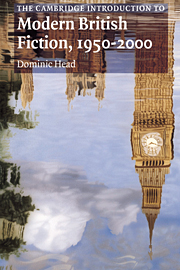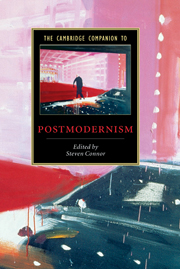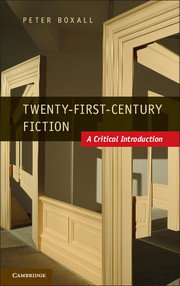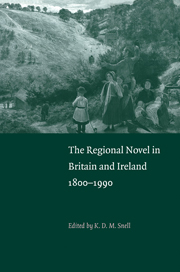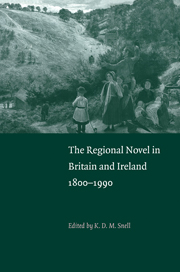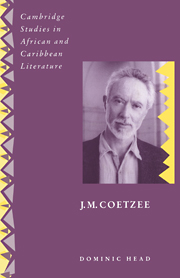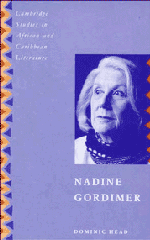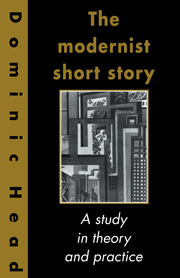The Cambridge Introduction to Modern British Fiction, 1950–2000
Dominic Head demonstrates how the novel yields a special insight into important areas of social and cultural history in the second half of the twentieth-century. His study is the most exhaustive survey of post-war British fiction available. Placing novels in their social and historical context, it includes chapters on the state and the novel, class and social change, gender and sexual identity, national identity, and multiculturalism. Accessible and wide-ranging, this is the most current introduction to the subject available.
- An inclusive survey of the post-war British Novel, 100 authors, and 200 works covered
- Reassesses the importance of post-war British fiction
- Includes examples from the entire period, with an emphasis on those that have remained in print, making the book a useful tool for course planning
Reviews & endorsements
"Anyone with an interest in the contemporary novel, not just British fiction, will appreciate this outstanding survey and analysis ... ranging from Angus Wilson to Zadie Smith, Head provides abundant evidence for his conclusion that 'the novel ... becomes an important focus for the society's alternative, redemptive, and connective thought.' This book should become a standard reference work for its subject." Choice
Product details
February 2005Adobe eBook Reader
9780511074554
0 pages
0kg
This ISBN is for an eBook version which is distributed on our behalf by a third party.
Table of Contents
- Acknowledgments
- Introduction
- 1. The state and the novel: The post-war wilderness
- The testing of liberal humanism
- The sixties and social revolution
- The post-consensus novel
- Intimations of social collapse
- After Thatcher
- 2. Class and social change: 'The movement'
- Anger and working-class fiction
- Education and class loyalty
- The formal challenge of class
- The waning of class consciousness
- The rise of the middle class
- The rise of the underclass
- The realignment of the middle class
- The role of the intellectual
- 3. Gender and sexual identity: Out of the bird-cage
- Second-wave feminism
- Post-feminism
- Repression in gay fiction
- 4. National identity: Reinventing Englishness
- The colonial legacy
- The Troubles
- Irishness extended
- Welsh resistance
- The 'Possible Dance' of Scottishness
- Beyond the Isles?
- 5. Multicultural personae: Jewish-British writing
- The empire within
- 'Windrush' and after: dislocation confronted
- The quest for a settlement
- Ethnic identity and literary form
- Putting down roots
- Rushdie's broken mirror
- Towards post-nationalism
- 6. Country and suburbia: The death of the nature novel
- The re-evaluation of pastoral
- The post-pastoral novel
- The country and the city
- Trouble in suburbia
- Embracing the suburban experience
- 7. Beyond 2000: Realism and experimentalism
- Technology and the new science
- Towards the new confessional
- The fallacy of the new
- A broken truth: Murdoch and morality
- Notes
- Bibliography.

